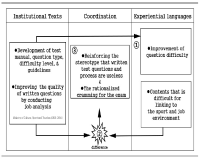
Purpose There are two purposes of this study; First is to investigate the reality of curriculum in the qualification system through the coordination process between participants’ experiences and institutional texts. Second is to identify the light and shade of the educational logics underlying the certificate courses of Level 2-sport-for-all-coach. Methods By relying on the institutional ethnography approach(Smith, 2005), the data were collected through on-site materials and semi-structural interviews with seven coaches who participated in the qualification programmes after 2015 system revision. The data were analyzed by mapping the social organization. Results The analysis shows two key findings. First, participants faced inconsistencies with institutional texts in the subcategories of qualification system and experienced (self-)rationalization process including doubt, complaint, acceptance and compromise toward the system. Second, Performance pedagogy and Craft pedagogy were operating at the root of the current qualification system, and the two logics led to the fundamental limitations(unlinked educational content, passive educational activity, and unsystematic educational operation) for the improvement of system. Conclusion The activation of the retrospective approach to distinguish the pros and cons of various educational logics was suggested. These findings are expected to provide useful implications for building the future framework to educate sport-coaches more systematically.

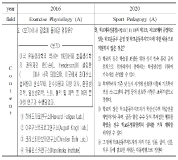
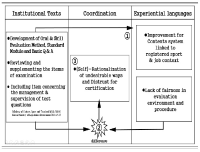
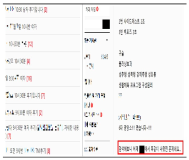
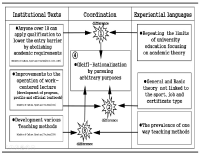
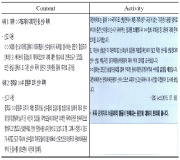
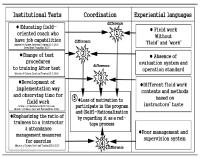
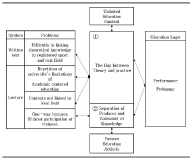
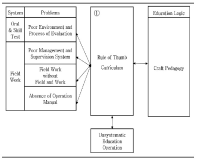
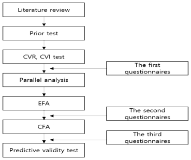
The purpose of this study was to develop an instrument that measures participantsʼ satisfaction in sports instructor training programs. The instrument development process includes focus group interviews, parallel analysis, and validity and reliability tests. Data were collected from 897 participants from three regular training sessions and were analyzed primarily using SPSS and MPlus software. The results indicated that the service satisfaction of sport instructor programs has an underlying three sub-factors, including ʻadministrative supportʼ, ʻcurriculum contentsʼ, and ʻlearning environmentʼ. This study can provide helpful information to managers in improving their respective sport instructor training programs.

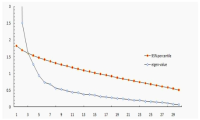

PURPOSE This study aimed to examine the difficult realities, unresolved problems, and policy proposals of disability sports in Korea through the disability sports movies <Mal-aton> and <Glove>. METHODS We conducted a textual analysis from the perspective of critical theory. RESULTS The problems of Korean disabled sports revealed in the films <Mal-aton> and <Glove> could be cattegorized into three major issues: 'incorrect prejudice and indifference' of non-disabled people that disabled people will not be able to enjoy sports; 'sports facilities' where non-disabled people are prioritized and disabled people are marginalized, and the 'absence of sports facilities' specialized for disabled people; and the 'lack of leaders' who correctly understand the characteristics of the disabled. These have been pointed out as causes that keep them away from the natural right to enjoy sports. CONCLUSIONS The films <Mal-aton> (2005) and <Glove> (2011) were made based on true stories, and despite the fact that more than 10 years have passed since they were made, it remains a sad reality that the problems of Korean disabled sports shown in the films remain unresolved. Improvement measures in various aspects are required to promote sports for the disabled from the perspective of lifelong and adapted sports, such as media education and publicity that can eliminate misunderstanding and prejudice against people with disabilities, building sports facilities tailored to the disabled, and improving the treatment of sports instructors for the disabled.